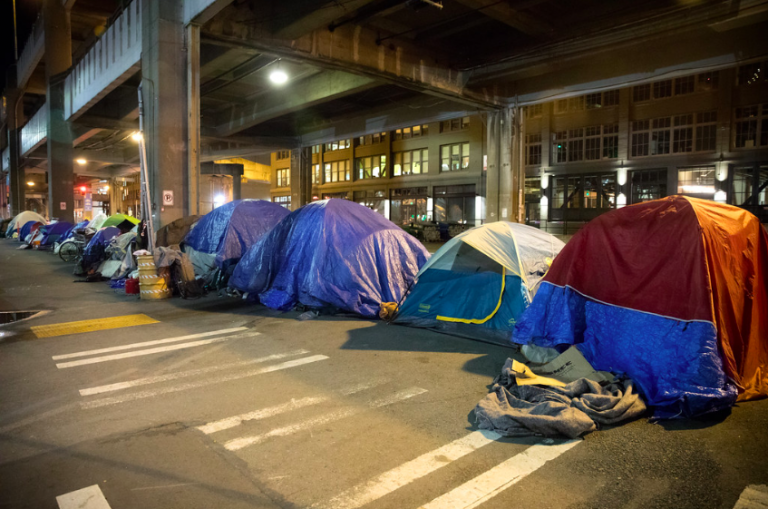Published on March 12, 2020

At a nonprofit providing health care and housing to the homeless population in the city, employees have begun a sprint to sanitize their facilities. Because the organization, the Downtown Emergency Service Center (DESC), is located in one of the U.S.’s first hotbeds of novel coronavirus infection, workers are bracing themselves for a wave of medical needs in the homeless community, which is especially vulnerable during disease outbreaks. The situation in Seattle may be a preview of things to come for other cities around the nation whose population of people without homes could be hit hard as the virus spreads.
For the city’s more than 12,000 people living without homes, the virus could be a serious threat. These individuals may be more susceptible than the general population to some respiratory illnesses such as COVID-19 (the disease caused by the new coronavirus), says Kira Newman, an infectious disease researcher at the UW Medicine.
“Coronaviruses spread through droplet transmission,” she says, so sanitizing surfaces and maintaining a distance between people are key to containing it. These precautions are not always practical for homeless individuals, who often lack access to soap and hot water and stay in crowded shelters. They also have a high rate of poorly treated chronic illnesses, putting them at a greater risk of a severe COVID-19 infection. Once people without homes get sick, they may lack the proper care required to get better, including a comfortable place to rest, warm liquids and medications.
Megan Hustings, managing director of the National Coalition for the Homeless, says health care providers require support from government officials and community members, too. Clinics that serve the homeless will need test kits and protective gear for their employees, she says. People handing out care packages should consider adding hand sanitizer (or soap) and wipes to them. Sick people will need shelter, access to bathrooms and a place to wash their hands. On March 5 Seattle’s mayor Jenny Durkan announced plans to expand homeless shelters to make room for a total of 100 additional people during the coronavirus emergency. The added space will be ready in two to three weeks, according to the mayor’s office.
Continue reading at Scientific American.
Originally written by Jen Monnier for Scientific American.